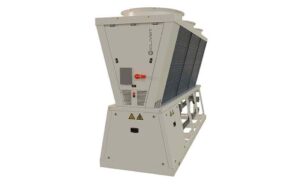70% of office workers complain of poor IAQ
17th August 2016 UK: Almost 70% of office workers believe poor air quality in their place of work is having a negative effect on their day-to-day productivity and well-being.
UK: Almost 70% of office workers believe poor air quality in their place of work is having a negative effect on their day-to-day productivity and well-being.
The YouGov survey commissioned by the Building Engineering Services Association (BESA) also reveals that a third of office workers are concerned that poor indoor air quality could be having a negative effect on their health.
Opening windows is the most commonly used form of ventilation with 60% of office workers saying it is the first thing they do if they need “fresh air”. However, the respondents were said to be concerned that opening office windows increased the risk of polluting the working environment by letting in outdoor toxins.
With most people spending, on average, 212 days a year at work, BESA has called on the industry, building managers and the general public to ensure proper, effective, well maintained ventilation systems are operating in all offices across the UK.
The office workers surveyed, reported suffering regularly from symptoms commonly linked to poor indoor air quality: 68% reported lapses in concentration; 67% reported suffering from fatigue; 54% experienced decreased productivity; 41% experienced watery or irritated eyes when in the office.
Almost 40% of office workers who suffer from at least one of these symptoms believed poor ventilation is the main reason for the problems they experience.
“Many people in the UK end up working more than 40 hours per week and, generally, we spend upwards of 90% of our time indoors,” said BESA chief executive Paul McLaughlin. “It is, therefore, crucial that buildings provide a healthy working environment.
“More and more people are becoming aware of the inadequate ventilation options in their offices, as well as the negative effect this is having on their health and their productivity.
“There is a perception that a lack of windows contributes to poor indoor air quality, but in reality, we need proper, well maintained air conditioning and ventilation systems in place. We need to make our buildings a safe haven for occupants, to protect them from the worst impacts of outdoor pollution as well as providing good quality, healthy indoor air.”
Substantial impact on health
The BESA survey follows a report published by the Royal College of Physicians earlier this year, which revealed that air pollution, both indoor and outdoor, could be linked to at least 40,000 premature deaths a year in the UK.
Commenting on the BESA survey results, professor Stephen Holgate, special advisor on air quality at the Royal College of Physicians, said: “As we noted in our report Every breath we take: the lifelong impact of air pollution, indoor air pollution is often an area which is overlooked. Poor ventilation is one part of this problem and, with the drive to reduce energy costs by making spaces more airtight, things will only get worse.
“We now know that air pollution has a substantial impact on many chronic long-term conditions, increasing strokes and heart attacks in susceptible individuals. That is why this is not just a job for government, local authorities or business – as individuals we can all do our part to reduce pollutant exposure,” added Professor Holgate.
Dr Prashant Kumar from the Department of Civil & Environmental Engineering at the University of Surrey added: “The World Health Organisation ranks air pollution as the third most significant health risk worldwide. Indoor air quality is greatly affected by the ventilation conditions of a household, commercial or workplace buildings.
“Modern buildings and workplaces are usually made airtight to conserve energy, but this can in fact compromise the indoor air quality due to lack of sufficient air changes. The results of this survey are very useful and indeed pertinent, not only for the general public but also for the scientific community and the urban planners.”
BESA is collaborating with a number of industry bodies including the Chartered Institution of Building Services Engineers (CIBSE) and Institute of Healthcare Engineering & Estate Management (IHEEM) to raise awareness about IAQ and produce detailed guidance for contractors, designers and facilities managers.







